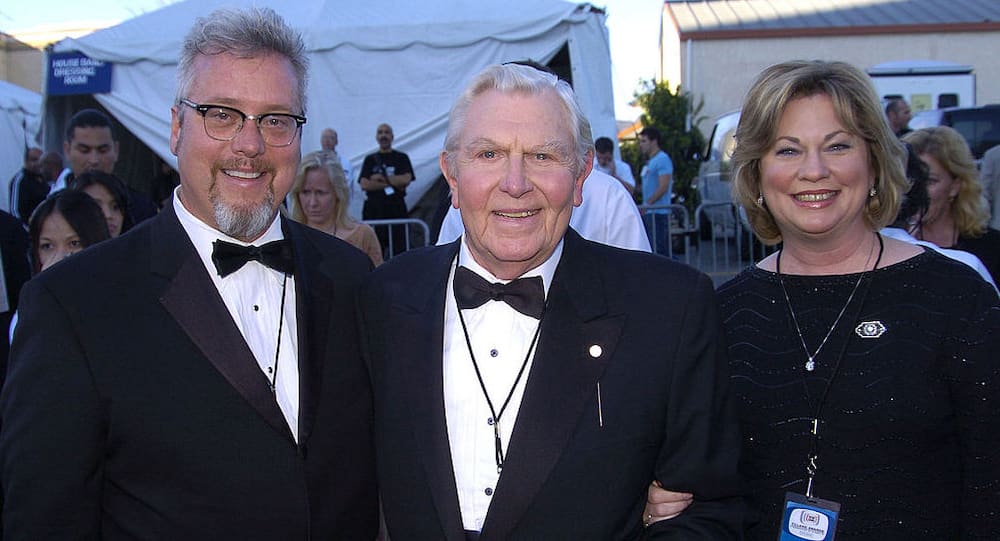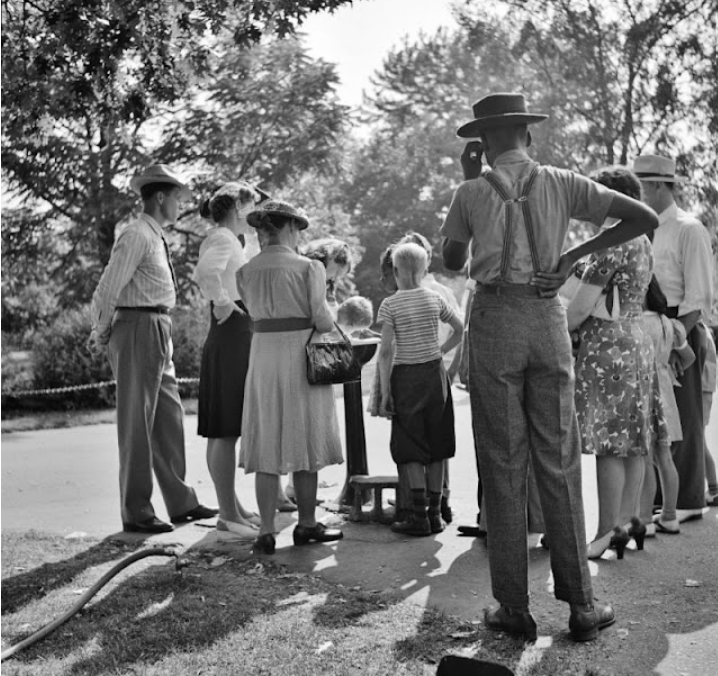In the annals of television history, few figures are as beloved and enduring as Andy Griffith. Born on June 1, 1926, in Mount Airy, North Carolina, Andy Griffith would go on to become one of the most iconic and beloved actors in American television history. With his warm smile, down-home charm, and unwavering moral compass, Griffith left an indelible mark on the hearts of viewers across generations. In this article, we'll take a closer look at the life, career, and lasting legacy of Andy Griffith.
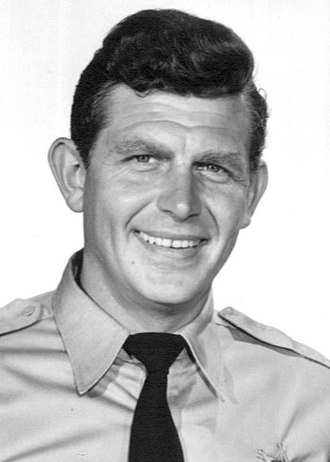
Early Life and Career
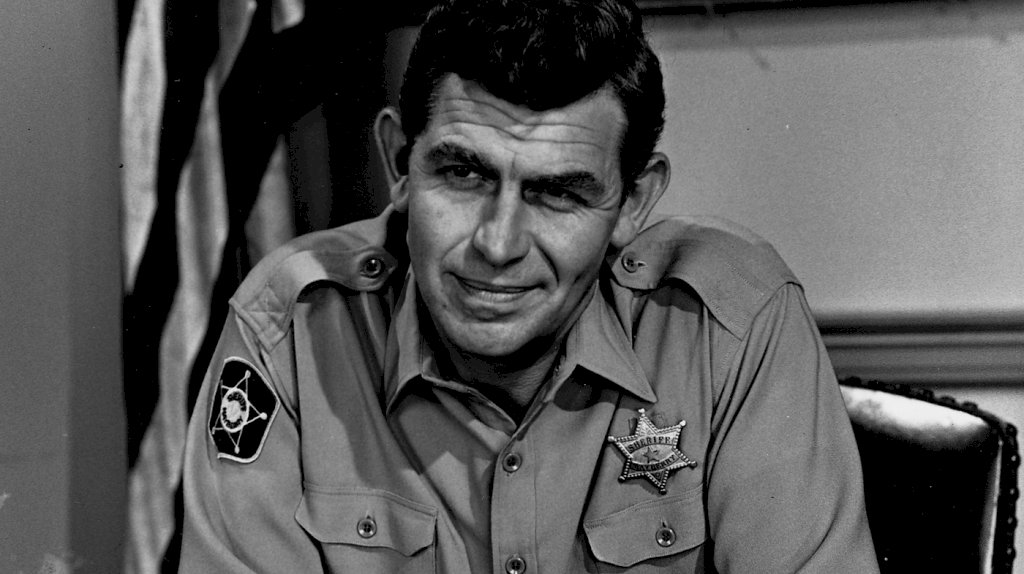
Andy Samuel Griffith was born to Carl Lee Griffith and Geneva Nunn on June 1, 1926, in Mount Airy, North Carolina. He grew up in a modest home in the small town, which would later become the inspiration for the fictional town of Mayberry in "The Andy Griffith Show." Griffith's upbringing was rooted in the values and traditions of rural America, which would later play a significant role in his on-screen persona.
After serving in the United States Army during World War II, Griffith attended the University of North Carolina at Chapel Hill, where he majored in music and drama. It was during this time that he began honing his acting skills and developed a passion for the performing arts. His talent was undeniable, and he soon found himself performing in various college productions.
Griffith's early career was marked by his success as a stand-up comedian and a recording artist. He released several comedy albums that showcased his wit and storytelling abilities. His most famous recording, "What It Was, Was Football," humorously recounted a rural man's first encounter with the sport. This recording catapulted Griffith to national recognition and marked the beginning of his journey in entertainment.
Transition to Television and Film
-1694144022.jpg)
In the early 1950s, Griffith transitioned from comedy albums to television, making appearances on popular variety shows of the time. His appearances on "The Ed Sullivan Show" and "The Steve Allen Show" showcased his comedic talents and led to guest roles in various television series.

However, it was his role in the film "A Face in the Crowd" (1957) that truly demonstrated Griffith's acting range. Directed by Elia Kazan, the film showcased Griffith as Lonesome Rhodes, a charismatic but manipulative radio and television personality. Griffith's portrayal of Rhodes, a character who rises to fame and then falls from grace, was a revelation. It highlighted his ability to transcend his affable persona and tackle complex, darker roles.
"The Andy Griffith Show"
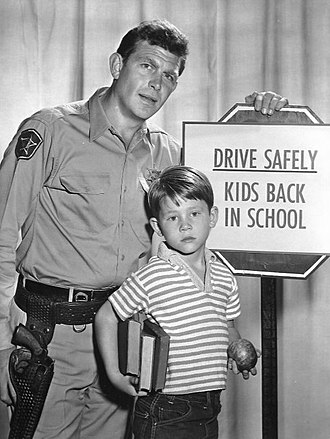
Andy Griffith's defining moment in television came with the creation of "The Andy Griffith Show." Premiering on October 3, 1960, this beloved sitcom set in the fictional town of Mayberry, North Carolina, became an instant hit. Griffith played the role of Sheriff Andy Taylor, a widowed father raising his son Opie (played by a young Ron Howard) and serving as the calming, wise, and good-natured lawman in the town.

"The Andy Griffith Show" was notable for its simplicity and authenticity. It portrayed the lives of ordinary people in a small town, tackling everyday challenges and dilemmas with humor, heart, and moral lessons. Griffith's portrayal of Sheriff Andy Taylor embodied the idealized version of a father figure and community leader.
One of the show's most enduring and heartwarming aspects was the relationship between Andy and his son Opie. The genuine chemistry between Griffith and Ron Howard brought their on-screen father-son dynamic to life. It's a testament to Griffith's acting abilities that this relationship felt so authentic and endearing to viewers.
The show's supporting cast was equally exceptional, featuring memorable characters like Barney Fife (Don Knotts), Aunt Bee (Frances Bavier), Gomer Pyle (Jim Nabors), and Goober Pyle (George Lindsey). Don Knotts, in particular, became an integral part of the show's success, and his comedic partnership with Griffith was legendary.
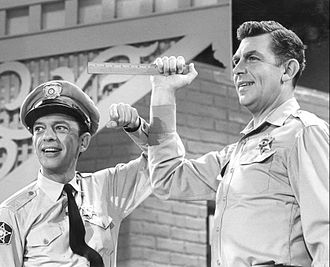
Throughout its eight-season run, "The Andy Griffith Show" consistently ranked among the top-rated programs on television. It wasn't just a sitcom; it was a reflection of American values and a source of comfort and nostalgia for viewers. The show's portrayal of a tight-knit community, where problems were solved with kindness and understanding, resonated deeply with audiences.
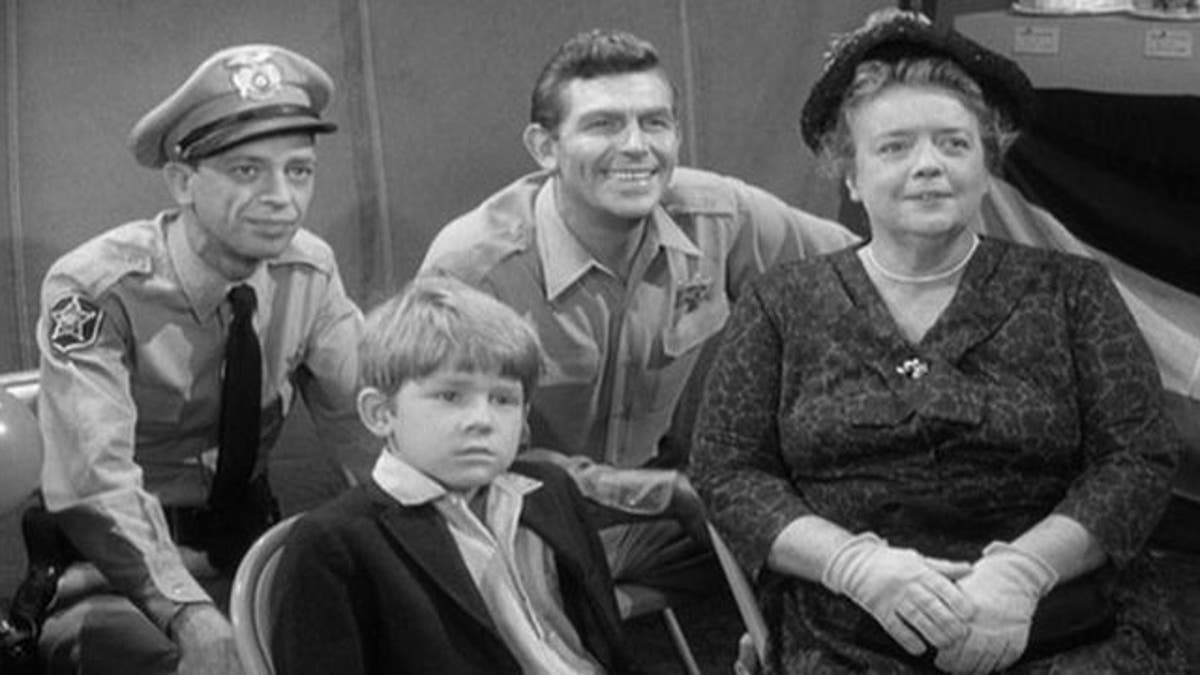
Griffith's Legacy as Sheriff Andy Taylor
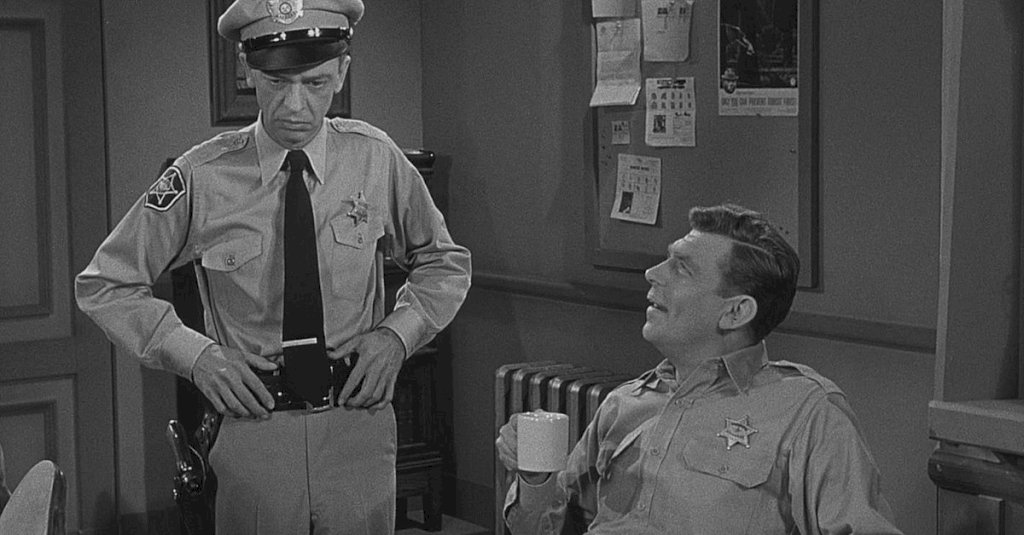
Andy Griffith's portrayal of Sheriff Andy Taylor remains one of the most beloved characters in the history of American television. His portrayal of a wise, compassionate, and fair lawman set a high bar for TV fathers and community leaders. Sheriff Taylor's calm demeanor and gentle guidance were qualities that many admired and aspired to emulate.
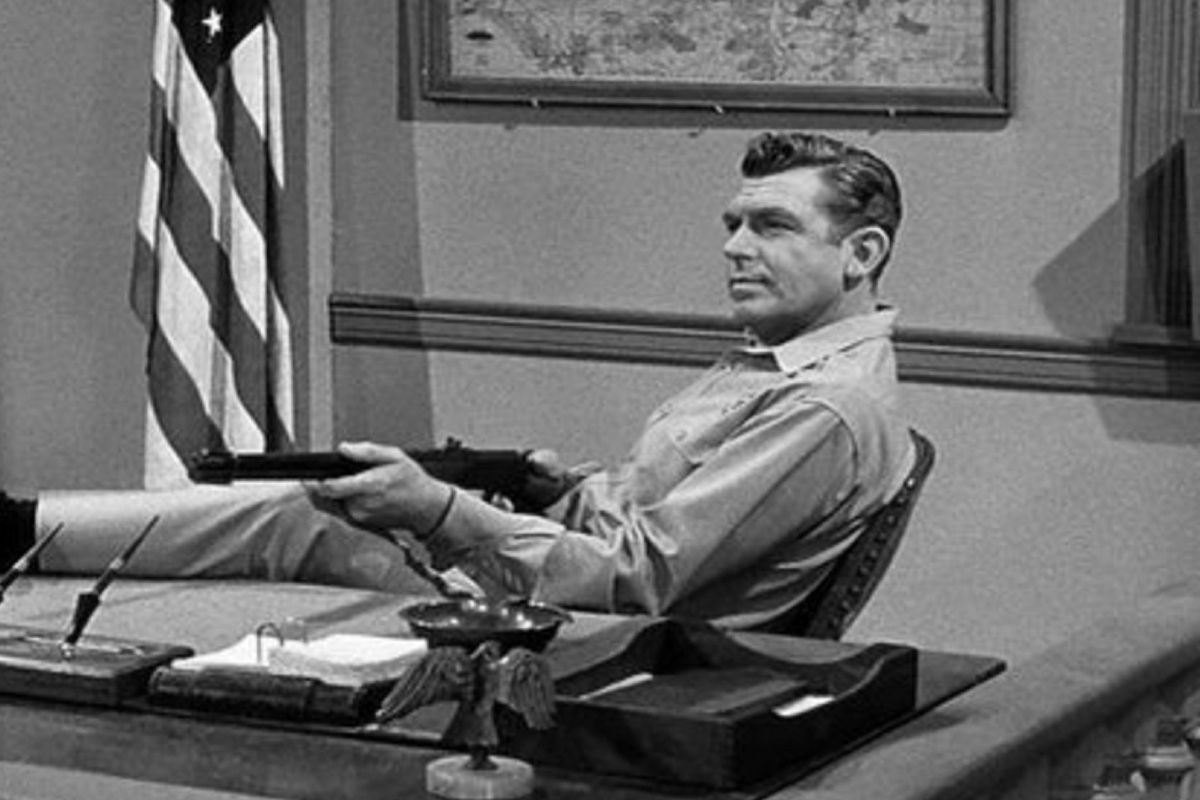
One of the key elements that made Sheriff Taylor such a compelling character was his ability to solve problems without resorting to violence. He preferred to use reason, empathy, and humor to diffuse tense situations. This approach resonated with viewers and sent a powerful message about conflict resolution.
Griffith's legacy as Sheriff Taylor extended beyond the small screen. He became a symbol of integrity and moral values, both in his personal life and in the characters he portrayed. His influence extended to the real world, where he was often sought after for his wisdom and advice. Griffith's embodiment of the ideal American father figure made him a respected and cherished figure in the hearts of many.
The show also tackled important social issues of the time, such as racial equality, in a subtle but impactful manner. One of the most notable episodes, "The Sermon for Today," depicted Sheriff Taylor's principled stand against bigotry. Griffith's willingness to address these issues on a popular sitcom was groundbreaking and aligned with his commitment to promoting positive values.
The Enduring Appeal of Mayberry
"The Andy Griffith Show" became a timeless classic, and its enduring appeal can be attributed to several factors. Firstly, it was a show that celebrated the simplicity of life in a small town, a theme that resonated with viewers of all ages. The picturesque setting of Mayberry, with its friendly townspeople and quaint charm, provided a comforting escape from the complexities of the modern world.
Secondly, the show's humor was rooted in everyday situations and the quirks of its characters. It wasn't about high-stakes drama or over-the-top comedy but rather the humor that could be found in the ordinary. This relatability made the show accessible to a broad audience.
Thirdly, the show's moral lessons were delivered with subtlety and nuance. It didn't preach or lecture viewers but instead allowed them to draw their conclusions from the characters' actions and interactions. The values of honesty, kindness, and community were woven into the fabric of the show, leaving a lasting impression on its audience.
Lastly, the chemistry among the cast members, particularly between Andy Griffith and Don Knotts, was a crucial ingredient in the show's success. The genuine friendship and comedic timing between the two actors created moments of pure comedic gold that are still celebrated by fans today.
Beyond the Television Screen
While "The Andy Griffith Show" was the pinnacle of his television career, Andy Griffith's talents extended far beyond the small screen. He continued to act in various television projects and appeared in numerous films, often in character roles that showcased his versatility.
In the 1970s, Griffith starred in "The New Andy Griffith Show" and "Salvage 1," though neither achieved the same level of success as his previous work. However, he remained a recognizable and beloved figure in the entertainment industry.
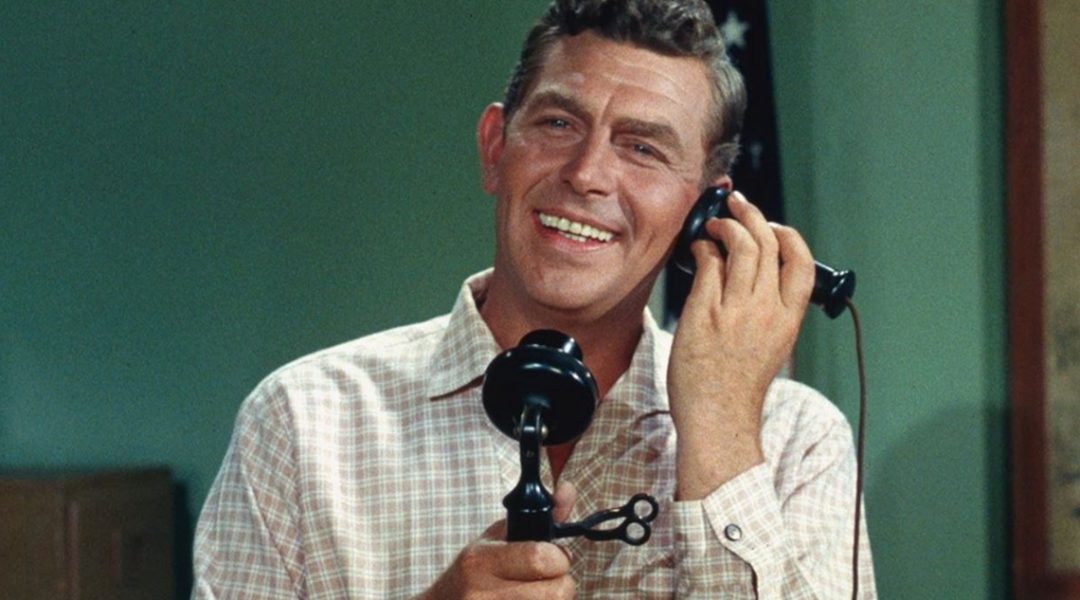
Throughout his career, Griffith also dabbled in theater, earning critical acclaim for his performances in productions like "No Time for Sergeants" and "Destry Rides Again." His stage work demonstrated his ability to connect with live audiences and further showcased his acting prowess.
Griffith's Music Career
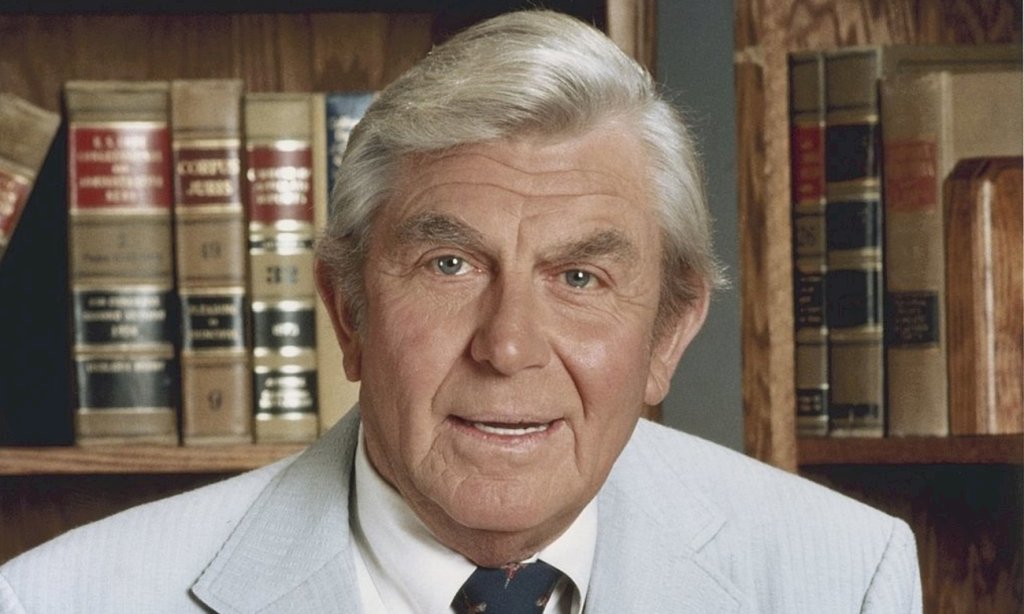
Andy Griffith's musical talent was a lesser-known aspect of his career, but it was an essential part of his creative expression. He released several albums, often blending his humor and storytelling skills with music. Some of his notable recordings included "Just for Laughs," "Make Yourself Comfortable," and "American Originals."
Griffith's albums were a testament to his ability to captivate audiences with his storytelling, whether through spoken word or song. His warm, folksy style made him a natural in the world of folk and country music.
In the 1990s, Griffith returned to his musical roots with the album "I Love to Tell the Story: 25 Timeless Hymns." This collection of classic hymns showcased his deep appreciation for religious music and further endeared him to his fans.
Late-Career Success and Legacy
As Griffith entered his later years, he continued to find success in various television projects. Notably, he appeared in the legal drama series "Matlock," which ran from 1986 to 1995. His portrayal of Ben Matlock, a brilliant and charismatic defense attorney, once again showcased his acting range and endeared him to a new generation of fans.
"Matlock" was a testament to Griffith's enduring appeal, as the show garnered a dedicated following and remained on the air for nearly a decade. His portrayal of the shrewd but fair-minded lawyer solidified his status as a beloved television star.
In 1996, Griffith received the Presidential Medal of Freedom, the highest civilian honor in the United States, for his contributions to American entertainment. This recognition underscored his significant impact on the cultural landscape and the hearts of Americans.
In the years that followed, Griffith continued to make occasional appearances in television and film, but he also focused on his personal life and philanthropic endeavors. He and his wife Cindi Knight, whom he married in 1983, were involved in various charitable causes, particularly those related to education and the arts.

Andy Griffith passed away on July 3, 2012, at the age of 86. His death marked the end of an era in American entertainment, but his legacy lived on through the enduring popularity of "The Andy Griffith Show" and the indelible mark he left on television history.
Impact on American Culture
-1694144333.jpg)
Andy Griffith's influence extended far beyond the realm of entertainment. He became a cultural icon, embodying the values of kindness, integrity, and community that were often associated with small-town America. His portrayal of Sheriff Andy Taylor, in particular, left a lasting imprint on the American psyche.
One of the remarkable aspects of Griffith's impact was his ability to bridge generational gaps. "The Andy Griffith Show" originally aired in the 1960s, yet it continued to resonate with viewers of all ages for decades. The timeless themes of family, friendship, and moral values made the show accessible to successive generations.
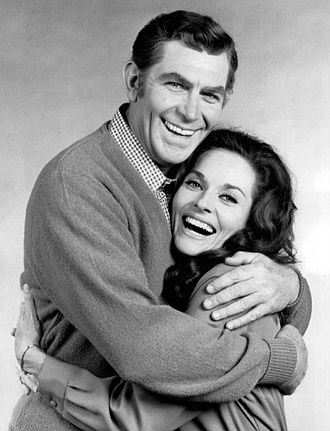
Griffith's legacy was not confined to the television screen. He was often sought after for public appearances and speaking engagements, where he shared his wisdom and humor with audiences. His warm and approachable demeanor made him a beloved figure in the hearts of fans and the broader American public.
The town of Mount Airy, North Carolina, Griffith's hometown and the inspiration for Mayberry, embraced its connection to the beloved actor. It became a tourist destination known as "Mayberry" and featured attractions related to "The Andy Griffith Show." Griffith's connection to Mount Airy brought economic revitalization to the town and showcased the enduring popularity of his work.
In 2002, Griffith published his autobiography, "Andy Griffith: Just as I Am," in which he shared his life story, career experiences, and personal insights. The book provided fans with a deeper understanding of the man behind the iconic characters and further solidified his status as a beloved figure in American culture.
Andy Griffith was more than just a talented actor; he was a beloved American icon whose influence extended far beyond the entertainment industry. His portrayal of Sheriff Andy Taylor in "The Andy Griffith Show" remains a touchstone of American television, celebrated for its warmth, humor, and moral lessons.

Griffith's career was marked by versatility, from his early days as a stand-up comedian to his later success as a dramatic actor and musician. He continued to find success throughout his life, becoming a beloved figure in multiple generations.
Above all, Andy Griffith's legacy is one of kindness, integrity, and community. His portrayal of Sheriff Taylor embodied the values that many Americans aspired to, and his impact on American culture is immeasurable. Griffith's enduring appeal and timeless contributions to the world of entertainment ensure that he will be cherished and remembered for generations to come, a true testament to the enduring power of his work and his indomitable spirit as an American icon.


